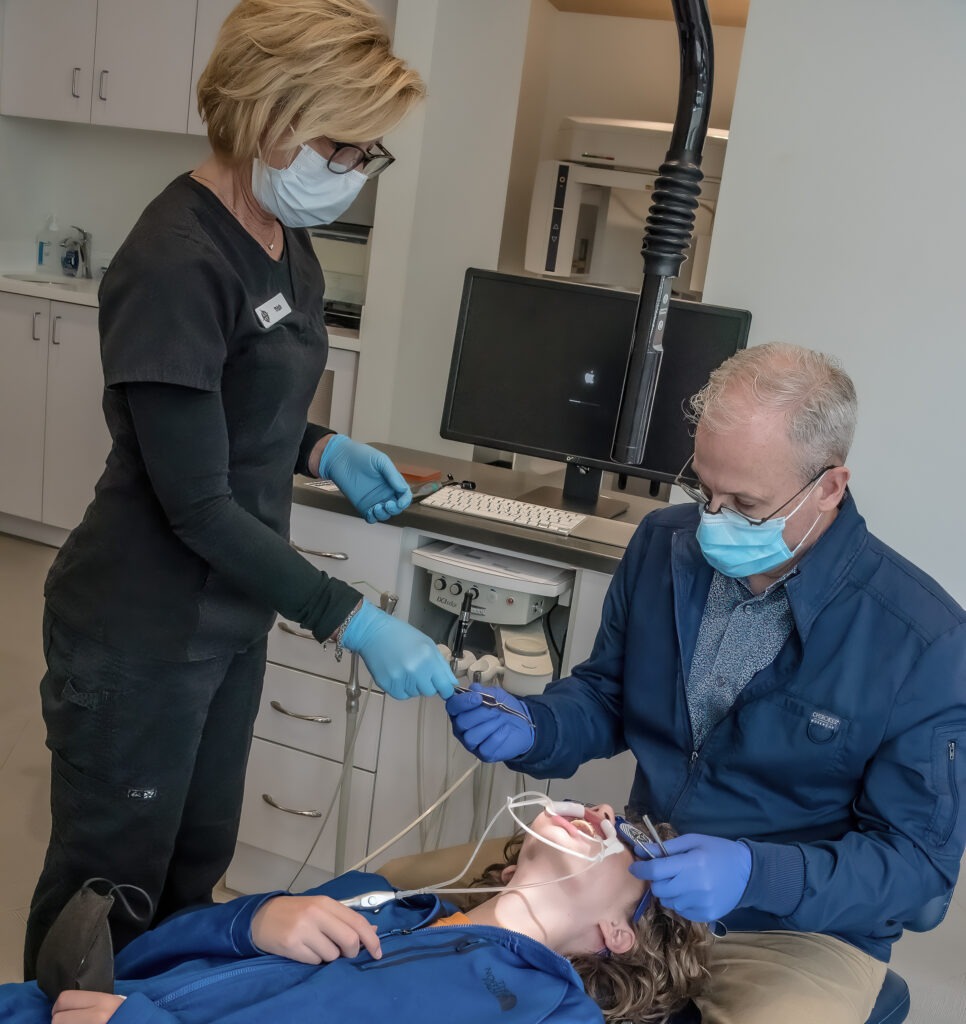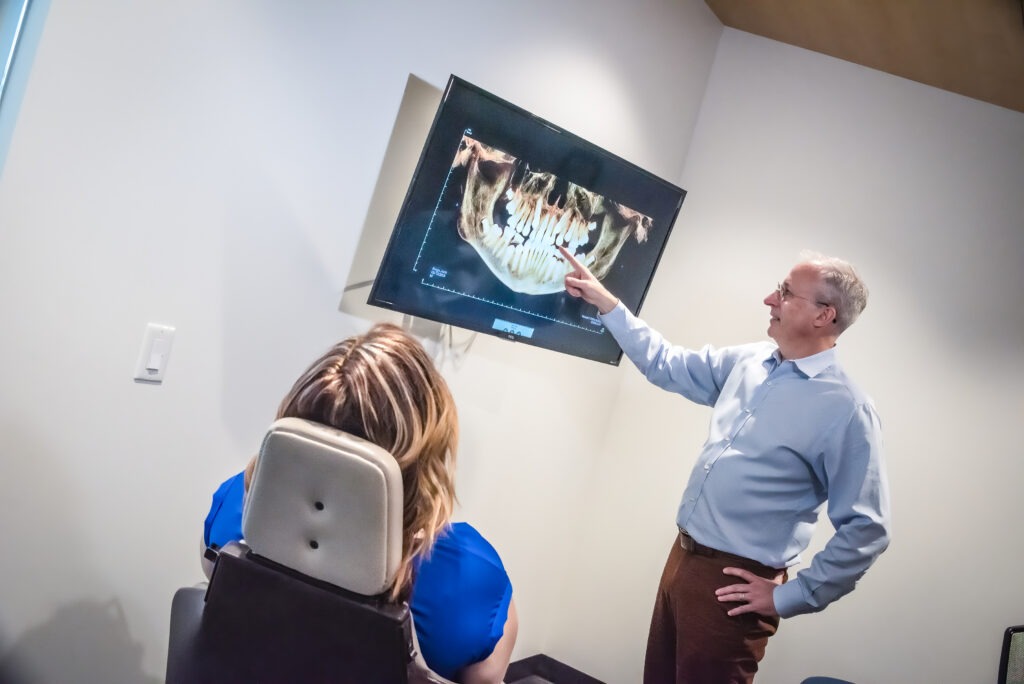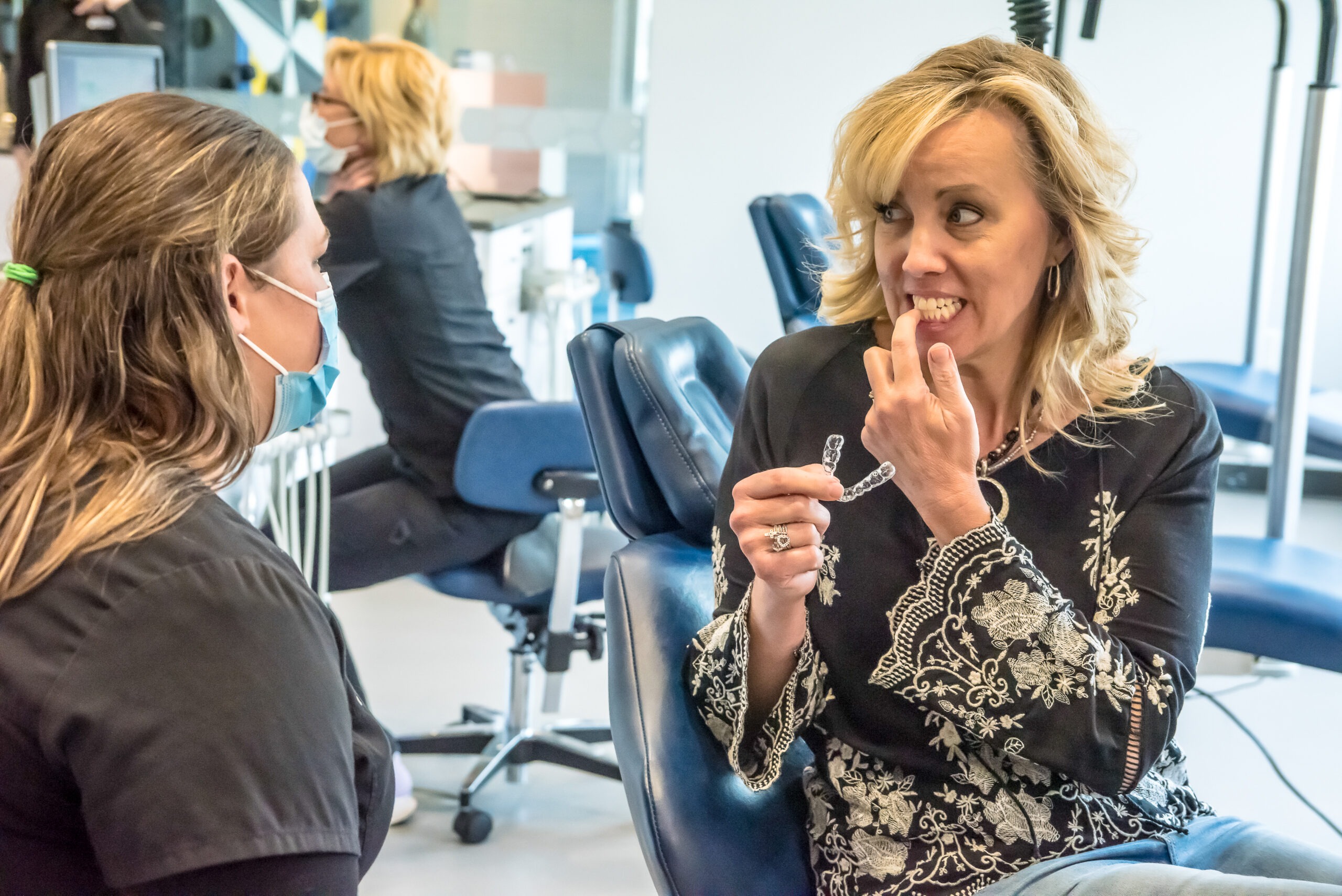Part of being a child is being curious, physical, and sometimes a bit clumsy. If your kiddo has encountered a serious issue with their teeth, this can constitute prompt medical attention and can be shocking, confusing, and worrisome. True orthodontic emergencies are quite rare, but being informed is important. Thankfully, professionals like Dr. Howard at Howard Orthodontics can address even these more dire incidents. This blog will cover how we treat orthodontic emergencies so that you can be well-prepared!
There is a pretty wide variety of dental emergencies that can take place, usually involving some manner of complication involving an orthodontic device, such as braces or spacers. Others are the results of an isolated injury or infection. The first step is to identify the situation and consider how serious it is. Please note that any life-threatening emergency should be addressed by calling 911 or visiting an emergency room!
Before covering specific instances, let’s go over some of the more general issues that can constitute an emergency:
- Any instance of serious trauma to the mouth, teeth, or face.
- Painful issues like swelling, bleeding, or infection of these areas.
Some minor issues can even be addressed at home. If your child has braces, you might consider creating an emergency kit including items such as braces wax, cotton swabs, and tweezers.
Examples of Orthodontic Emergencies
A Tooth is Knocked Out/Out of Place by Force
Ouch! This is probably the first place your brain goes when you imagine a serious dental incident. Maybe a child bit something very hard, or maybe they experienced some manner of trauma to their mouth. If the child has braces and this occurs, it is an especially urgent matter and should be addressed within two hours to potentially salvage the tooth in question. It is important to stop any bleeding and to handle the tooth by the crown (the top of the tooth, not the root!). If an office like Howard Orthodontics is not open, the emergency room will be your best option. So what should you do with the tooth? Clean it off with water, place it in a container with either saline or saliva (yes, really!), or even milk.
Another key prevention measure for this manner of trauma can be wearing a mouthguard during physical activities like sports.
Broken or Shattered Tooth
So, maybe the tooth didn’t come all the way out. It’s still not a happy situation! If a tooth is shattered for some reason, the first order of business is to call the office. You should address bleeding and rinse out the mouth. As with a tooth that has come out fully, it’s important to try and salvage any pieces of the broken tooth and to keep them moist. The patient should avoid anything that could cause sensitivity or pain, such as cold substances.
Severe Toothaches
When your child has tooth pain, especially when they cannot pinpoint the cause, it can be a reason for concern. It is important to try and address this quickly, as opposed to waiting to see if it goes away on its own. Warm salt water rinses can be a good home remedy or painkillers like acetaminophen (Tylenol).
Likely causes include some manner of an oral cavity or food stuck in braces.
Loose Bracket or Band
In a set of braces, the part that is attached to the front of your tooth with glue is called a bracket. The band is placed in the back molars. Having these pieces come loose is a relatively common occurrence since a lot of accidents can happen. It can be due to improper consumption of certain sticky or solid foods, for example. So what do you do if you feel them come loose or break? Of course, the first course of action is to contact your orthodontist’s office; it does not necessarily require calling an after-hours number since there are a few options you can explore outside of the office setting.
If the wire is broken, you can use dental wax to help with the sharp end. If it’s completely broken off, just have the piece on hand when you see your doctor. If it’s a loose bracket, it can simply be reattached by your dentist with glue. It’s usually wisest to wait for your orthodontist to inspect these problems and not try to repair them yourself!

Sores in the Mouth
When you have braces, it is to be expected that some of the elements could cause irritation to parts of the mouth and gums. While persistent pain is something you should mention to Dr. Howard during a visit, you can typically treat this from home using anesthetic gel to soothe these areas of concern.
Abscesses
These abscesses can be a nasty business! If your child experiences sudden, intense pain around their gumline, it could be an abscess. They need to be promptly treated, as infection can move to other parts of the body if left unacknowledged. This is another instance where using painkillers like acetaminophen can be an ideal treatment for soreness.
How to Prevent Orthodontic Emergencies
If your child has thankfully avoided any serious issues thus far in their dental journey, there are a couple of ways you can ensure that continues!
Think Before You Eat!
That’s right. Food is one of the key factors in many of these scenarios. When you have braces, it is critical that you are careful with what you choose to consume. Some foods to be cautious of are ones that are sticky, hard, and chewy. These tend to manifest in sweeter foods and candies, but not always! Even something like an apple can be cause for concern.
Follow Proper Protocol for Your Braces
There are a number of rules you need to follow when taking care of your braces. They were probably laid out by your orthodontist pretty early on! Be sure to consider how you brush, floss, and otherwise navigate the world wearing your braces. Neglecting them can lead to a wide variety of issues. It’s also important to attend your regular cleanings every six months.

Let Dr. Howard Help You Out in an Emergency!
If you have a problem you consider an emergency during business hours, call right away at (717) 464-0177! Our Howard Orthodontics team will provide you with guidance on your next steps and get your issue fixed!
